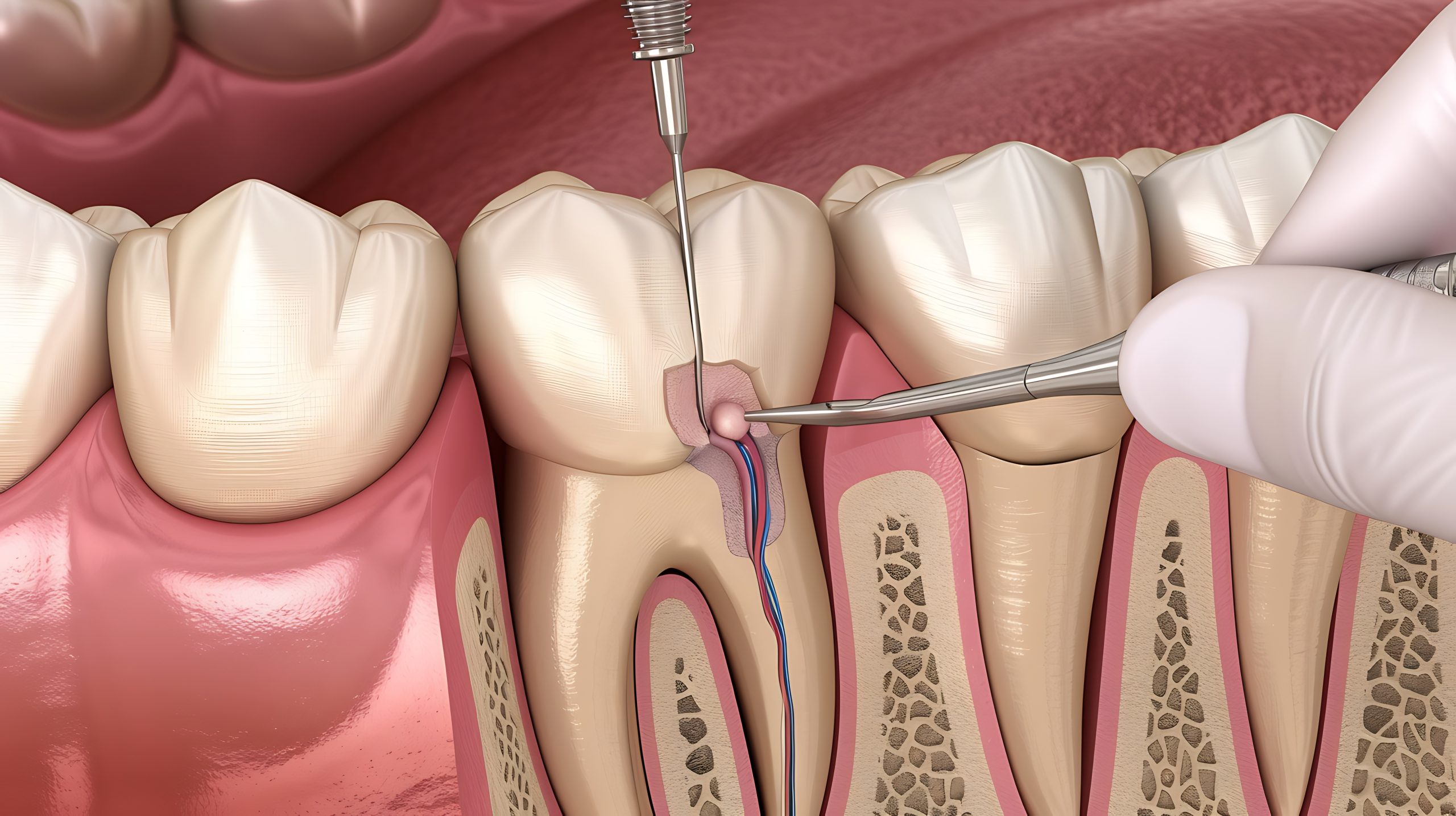If you’ve ever felt a sudden, sharp pain when biting into something sweet or hot, you might have wondered: “What is a nerve in my teeth and how do I fix it?” — The quick answer: the “tooth nerve” is the soft tissue found inside your permanent tooth (known as the dental pulp) that contains both nerves and blood vessels; when it becomes irritated, inflamed or exposed, treatment is possible and necessary to prevent further damage.
Inside each of your permanent teeth is a central chamber filled with the pulp — a living tissue made up of connective tissue, blood vessels and nerve fibers. The nerve’s role is crucial: it allows you to sense temperature changes, pressure, and pain, alerting you when something is wrong in your oral health. However, when decay, a crack, gum disease or other damage reaches this inner core, the nerve becomes vulnerable to inflammation, infection and severe pain. In this article, we’ll walk through what the tooth nerve really is, what causes nerve-related tooth pain, how to fix a nerve issue in your tooth, and how to seek relief — especially if you’re looking for trusted care in Jeddah or the Makkah region.
What Is a Tooth Nerve?
Inside each of your permanent teeth is a soft core known as the pulp, which contains blood vessels and the tooth nerve. This nerve is responsible for sensing pain, pressure, hot and cold sensations.
When a tooth is healthy, this nerve is safely housed within enamel and dentin. But when decay, trauma, or gum disease weakens those protective layers, the nerve may become irritated, or worse — exposed.
Why Does a Tooth Nerve Become Problematic?
Several conditions can lead to nerve pain or exposure:
- Tooth decay that reaches the pulp and compresses the nerve.
- Enamel or dentin wear (from brushing too hard, acid erosion, or grinding) that allows stimuli to directly reach the nerve.
- Cracked or fractured tooth, or broken filling, exposing the nerve.
- Gum disease / receding gums can expose tooth roots and make the nerve vulnerable.
- Infected pulp causing nerve death or irreversible damage.
What Does Tooth Nerve Pain Feel Like?
When the tooth nerve is irritated or exposed you might experience:
- Sharp, throbbing, or shooting lingering pain in a single tooth, sometimes radiating to the jaw or head or can wakes you from sleep.
- Intense sensitivity to hot, cold, sweet or even air.
- Pain triggered by chewing or biting down.
- Swollen or tender gums around the tooth, bad taste or bad breath if infection is present.
How to Fix a Nerve in Your Tooth: Treatment Options
Depending on how severe the nerve involvement is, your dentist or endodontist will propose one or more of the following:
- Early-stage treatment – If the nerve is irritated but not yet infected: removing decay, placing a filling or crown, managing the cause before full nerve damage.
- Root canal treatment – When the nerve is infected or dead, the treatment removes the diseased nerve tissue and seals the canals to preserve the tooth.
- Extraction (tooth removal) – If the tooth cannot be saved or the infection is too advanced, removal may be the safest option.
- Home relief and hygiene support – While waiting for treatment: avoid triggers (hot/cold/sweet), use toothpaste for sensitivity, rinse with warm salt water, soft diet. But these are temporary measures.
Professional Advice
- If you feel persistent nerve-type tooth pain, don’t wait: early treatment preserves your tooth and avoids more complex problems.
- Maintain excellent oral hygiene: brush twice daily, floss, prevent tooth decay and gum disease which often lead to nerve issues.
- Avoid harsh brushing, acidic drinks, chewing on ice or hard substances that weaken enamel and expose nerves.
- Choose a clinic where the dentist or endodontist explains clearly the nerve issue, shows you the x-rays, and reviews all treatment options (preservation vs removal).
- After treatment (especially root canal) keep up follow-up, avoid putting heavy chewing forces on the treated tooth until fully restored.
FAQs
What is a nerve in your teeth?
The nerve refers to the soft tissue (pulp) inside your tooth, which contains nerves and blood vessels. It gives the tooth sensations and keeps it alive.
How to fix a nerve in your tooth?
Treatment depends on how damaged the nerve is: if early, a filling or crown may suffice; if infected, a root canal or extraction is needed.
What symptoms indicate tooth nerve pain?
Sharp or throbbing pain, sensitivity to hot/cold/air, pain on chewing, swelling or bad taste.
Can nerve pain go away by itself?
Unlikely if the cause is decay or infection. Without treatment, damage progresses and pain may worsen.
When should I see a dental specialist for nerve issues?
When you notice persistent nerve-type pain, sensitivity, or visible damage/crack; ideally before extraction becomes the only option.
